Green Tea & Warfarin Risk Calculator
Calculate Your Green Tea Risk
This tool helps you understand if your green tea consumption could affect your INR levels while taking warfarin.
If you’re on warfarin, you’ve probably heard to watch your spinach, kale, and broccoli. But what about your morning cup of green tea? It’s not just a calming ritual-it could be quietly messing with your blood clotting, especially if you’re drinking it by the gallon. This isn’t theory. Real people have seen their INR drop from safe levels to dangerous lows after switching to heavy green tea habits. And the reverse can happen too-stop drinking it suddenly, and your INR can spike. The truth? It’s not about cutting green tea out entirely. It’s about consistency.
How Warfarin Actually Works
Warfarin (brand names Coumadin, Jantoven) doesn’t thin your blood like water. It blocks vitamin K from doing its job. Vitamin K is what your liver needs to make clotting factors-proteins that stop you from bleeding out after a cut. Warfarin shuts down the recycling system for vitamin K, so your body can’t make enough of those clotting proteins. That’s good if you’re at risk for a stroke or clot. But if vitamin K suddenly floods back in-say, from a big batch of green tea-your body starts making clotting factors again. Your INR drops. Your blood clots faster. Risk goes up.
The goal? Keep your INR steady. For most people, that’s between 2.0 and 3.5. Go below 2.0, and clots can form. Above 3.5, you risk bleeding inside your brain or gut. That’s why you get blood tests. That’s why your doctor asks what you’ve been eating.
Green Tea Has Vitamin K-But Not Like You Think
Here’s where it gets confusing. Dried green tea leaves? Packed with vitamin K-over 1,400 micrograms per 100 grams. That’s more than spinach. But you’re not eating the leaves. You’re brewing them. And when you brew green tea, almost all the vitamin K stays in the leaves. The brewed tea? Roughly 0.03 micrograms per 100 grams. That’s tiny. So why do people have problems?
Because some people drink a lot. Like, a lot. One documented case had a man drinking half a gallon to a full gallon of green tea every day. His INR dropped from 3.79 to 1.37 in weeks. That’s a dangerous drop. He wasn’t eating kale-he was drinking tea like it was water. And that’s the problem: quantity.
Matcha Is a Different Story
If you drink matcha, you’re not just drinking tea-you’re drinking the whole leaf. Ground up. Swallowed. That means you’re getting all the vitamin K that brewed tea leaves out. Matcha has 10 to 20 times more vitamin K than regular green tea. That’s why doctors are seeing more INR swings with matcha users. One patient at Mayo Clinic went from a stable INR of 2.8 to 1.9 after drinking four matcha lattes a day for two weeks. His dose had to go up by 15%. That’s not rare. It’s predictable.
Regular green tea? Two to three cups a day? Most people won’t see a change. But matcha? Even one cup a day can be enough to cause issues if you’re not tracking it.
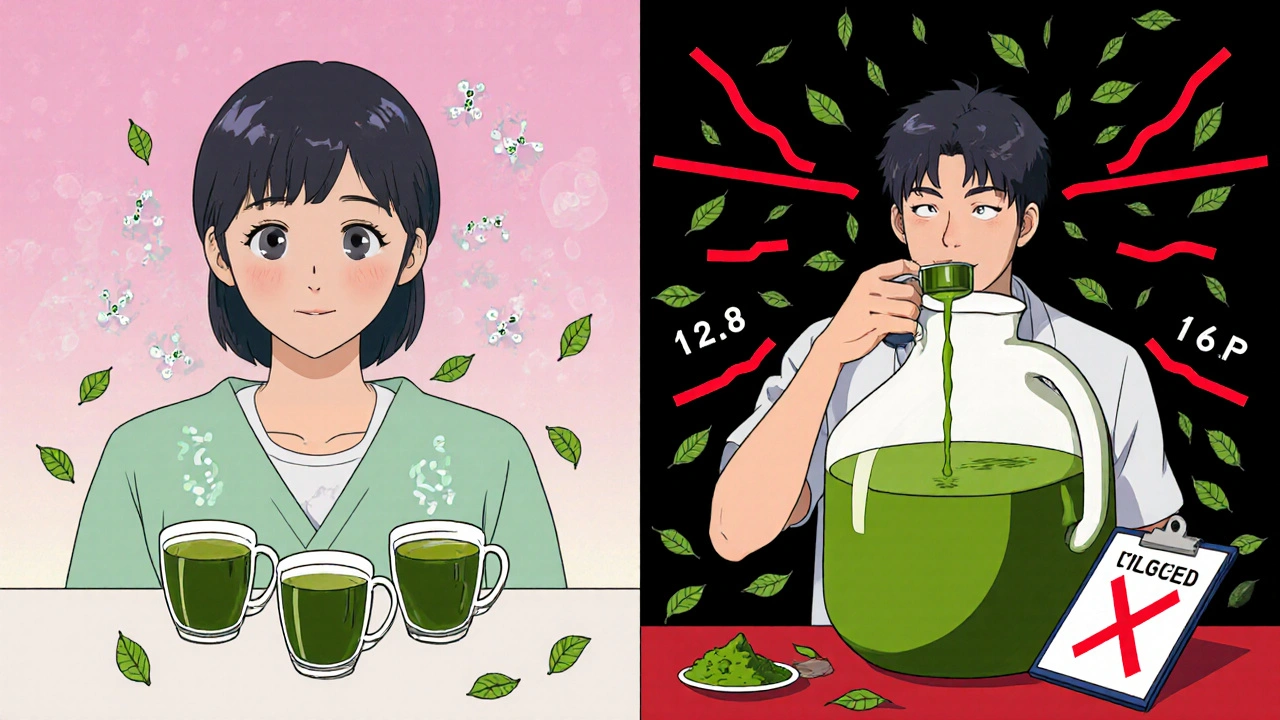
It’s Not Just Vitamin K
Green tea isn’t just a vitamin K bomb. It’s also full of catechins-antioxidants that can actually thin your blood a little by stopping platelets from clumping. So here’s the paradox: vitamin K makes your blood clot more. Catechins make it clot less. That means green tea could theoretically cancel itself out. And for most people, it does.
But in some people, one effect wins. Maybe your body absorbs vitamin K more easily. Maybe your liver is extra sensitive. Maybe you’re on a low dose of warfarin. That’s why some people drink three cups a day for years with no change-and others see their INR drop after just one week of matcha.
What About Other Teas?
Black tea? Same deal. Less vitamin K than leaves, but if you drink a liter a day, it can matter. Green and black tea are similar in this regard. Herbal teas? That’s a different world. Ginger tea? Usually fine. Chamomile? Could increase bleeding risk. Ginkgo tea? Linked to bleeding in warfarin users. Goji berry tea? One case report showed INR spikes after just three glasses a day. So don’t assume “herbal” means safe.
Cranberry juice? That’s a different mechanism. It blocks how your body breaks down warfarin. So even a small glass can make your INR jump. Green tea doesn’t do that. It’s all about vitamin K.
What’s the Safe Amount?
There’s no magic number that works for everyone. But here’s what the experts agree on:
- 1-3 cups (8 oz each) of regular green tea per day? Almost always safe.
- More than 500 mL (about 2 cups) daily? Start monitoring. Talk to your doctor.
- More than 1,000 mL (a full quart) daily? High risk. Your dose may need adjustment.
- Matcha? Limit to 1 cup per day max. And tell your anticoagulation clinic.
The American Heart Association says you can drink up to three cups daily without changing your dose. The UC San Diego guidelines say you only need to worry if you’re drinking over a gallon a day. But real-world data shows the line isn’t that clear. One person’s safe amount is another’s disaster.
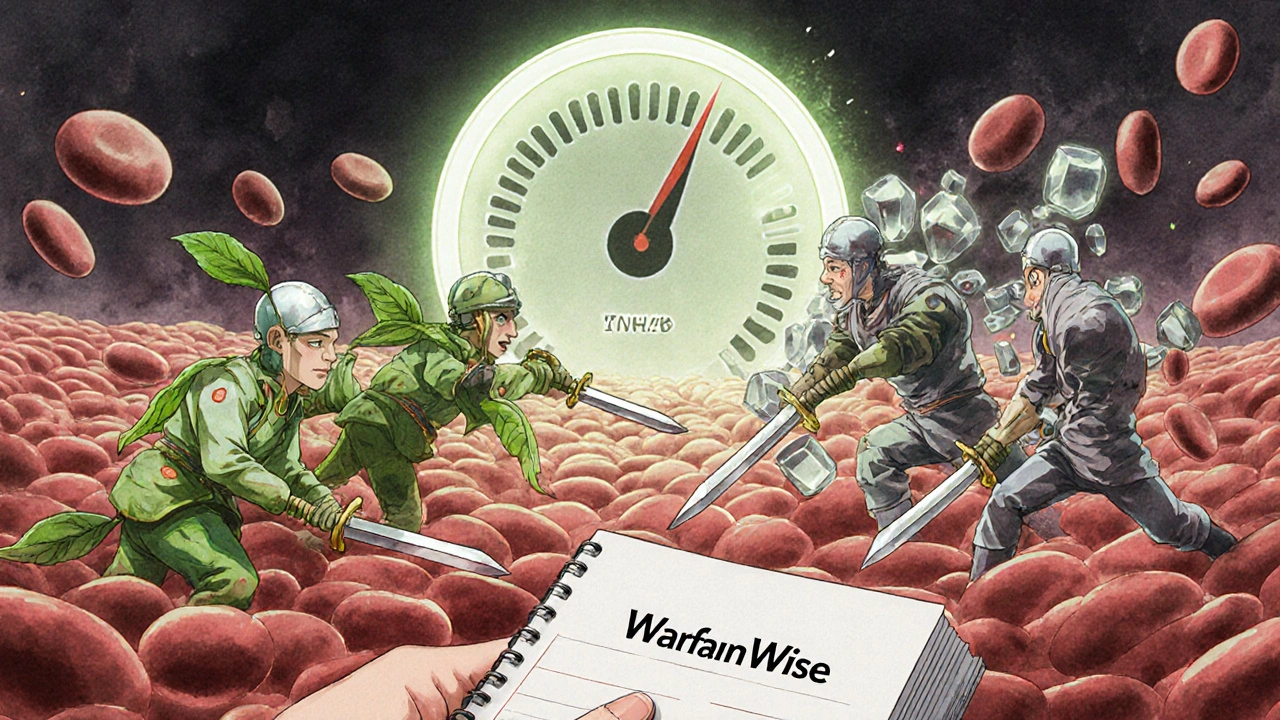
What Should You Do?
You don’t need to quit green tea. But you do need to be smart.
- Don’t start or stop suddenly. If you’ve been drinking two cups a day for months, keep doing it. If you want to add matcha, start slow and get an INR check in two weeks.
- Track your intake. Use an app like WarfarinWise. Log every cup. Even if it’s just herbal tea.
- Know your tea. Is it loose leaf? Bagged? Matcha? Cold brew? Hot brew? Cold brew has less vitamin K. Matcha has way more.
- Get your INR checked more often if you change your tea habit. If you go from one cup to five, get tested in 3-5 days.
- Tell your pharmacist and doctor. Don’t assume they know. Many don’t ask about tea.
Most warfarin users who drink green tea in moderation never have a problem. But the ones who do? They usually didn’t realize their tea was the cause. One survey found 62% of people didn’t know about the interaction until their INR crashed.
When to Call Your Doctor
Call immediately if:
- You suddenly started drinking a lot of green tea or matcha.
- You stopped drinking it after years of daily use.
- You’re feeling bruised, bleeding gums, dark stools, or headaches.
- Your INR test came back outside your target range and you changed your tea intake.
Don’t wait. Don’t guess. A drop in INR means your blood is clotting too fast. A spike means you’re bleeding too easily. Both can kill.
Bottom Line
Green tea isn’t the enemy. Warfarin isn’t the enemy. The enemy is inconsistency. Your body thrives on routine. If you drink tea, drink the same amount every day. If you don’t, don’t start. If you switch to matcha, tell your doctor. If you stop drinking tea, expect your INR to rise. And always-always-get your blood tested when something changes.
Warfarin works best when your life stays predictable. Your tea habit is part of that. Don’t let it become a surprise.
Can I drink green tea while on warfarin?
Yes, but only if you drink it consistently. One to three cups of regular green tea per day is generally safe for most people on warfarin. The key is not to change your intake suddenly. If you’ve been drinking two cups daily for months, keep doing it. If you want to start drinking more or switch to matcha, talk to your doctor and get an INR check within a week.
Does green tea lower INR levels?
Yes, but only in large amounts. Drinking more than one gallon (3.8 liters) of regular green tea daily has been shown to significantly lower INR levels by introducing enough vitamin K to counteract warfarin. Matcha, which contains the whole leaf, can have the same effect with as little as four cups per day. Most people who drink 1-3 cups won’t see any change.
Is matcha safer or riskier than regular green tea?
Matcha is much riskier. Since you consume the entire ground tea leaf, matcha contains 10-20 times more vitamin K than brewed green tea. Even one cup of matcha daily can affect INR levels in sensitive individuals. People on warfarin should limit matcha to one cup per day at most and monitor INR closely if they start using it.
What happens if I stop drinking green tea after years of daily use?
Your INR may rise sharply. If your body has adapted to getting vitamin K from daily tea, suddenly removing it means less vitamin K is available for clotting factor production. This can cause your INR to increase, making your blood thinner than intended. In one documented case, a patient’s INR jumped from 1.7 to 5.0 within a week after stopping black tea. Always consult your doctor before stopping any regular dietary habit while on warfarin.
Should I avoid green tea completely while on warfarin?
No. Avoiding green tea completely is unnecessary and can lead to unnecessary dietary stress. The goal isn’t elimination-it’s consistency. The American Heart Association and other major guidelines recommend maintaining a steady intake of vitamin K, including from green tea. Most people can safely enjoy 1-3 cups per day without issue. The real danger is inconsistency: drinking a lot one week and none the next.
How do I know if green tea is affecting my INR?
You won’t feel it. INR changes happen silently. The only way to know is through regular blood tests. If you’ve changed your tea intake-whether you started, stopped, or increased it-and your INR has moved outside your target range, green tea is a likely contributor. Keep a daily log of your tea consumption and share it with your anticoagulation clinic. Apps like WarfarinWise can help track patterns over time.
Are there other teas I should avoid on warfarin?
Avoid herbal teas with unknown effects, especially ginkgo, goji berry, ginger, and chamomile. Ginkgo and goji berry have been linked to bleeding episodes in warfarin users. Cranberry juice is also risky-it interferes with how your body breaks down warfarin, which can cause dangerous INR spikes. Black tea is similar to green tea in risk level. Stick to known, consistent beverages and avoid experimenting with new herbal teas without checking with your doctor.

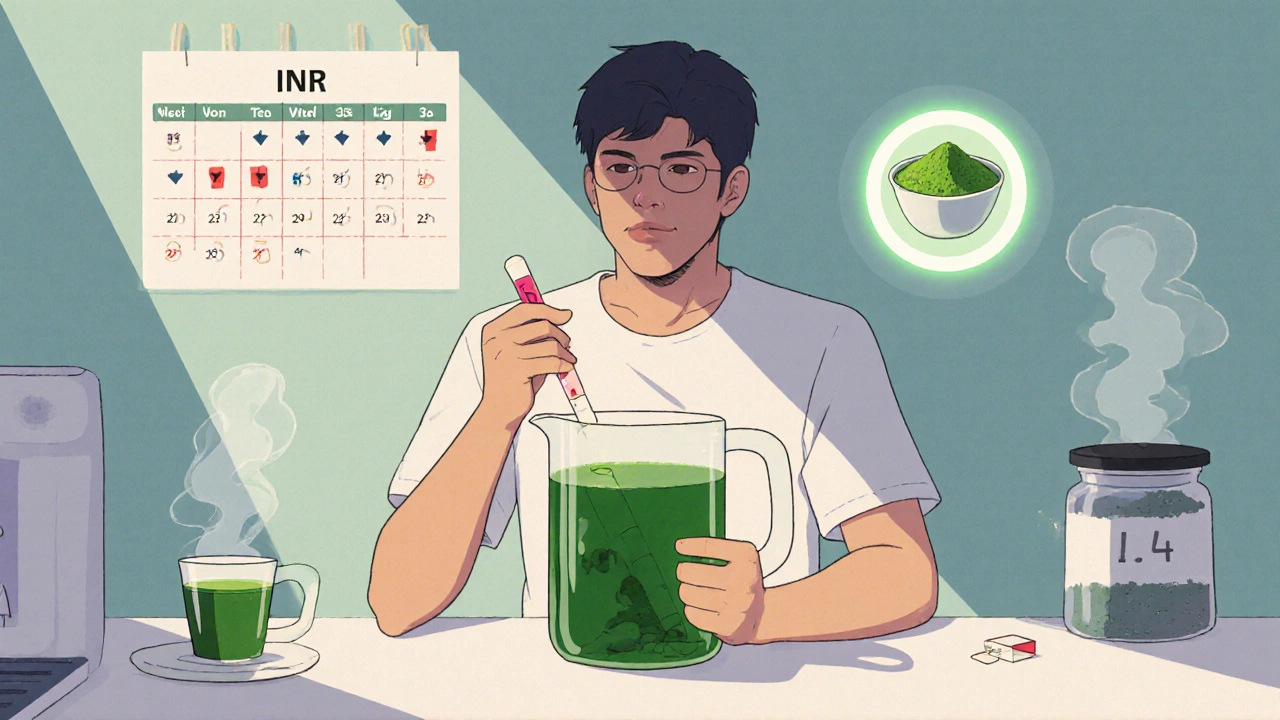
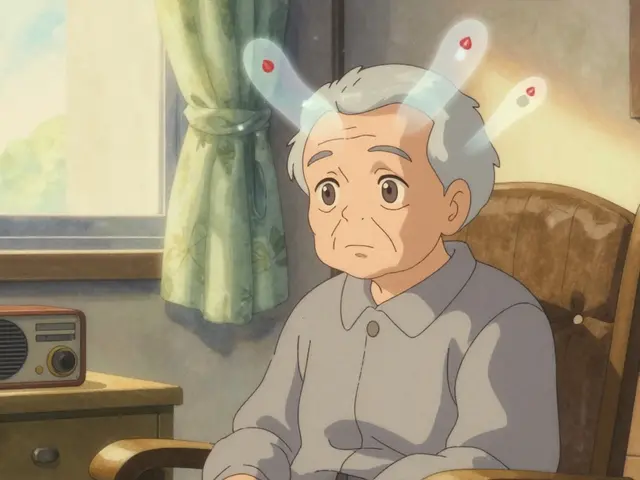
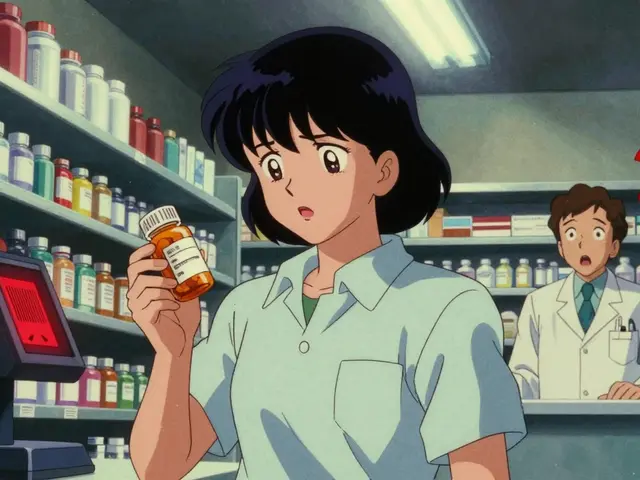
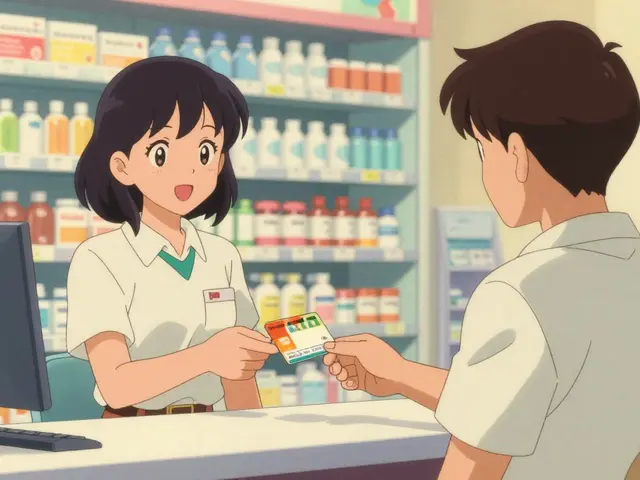
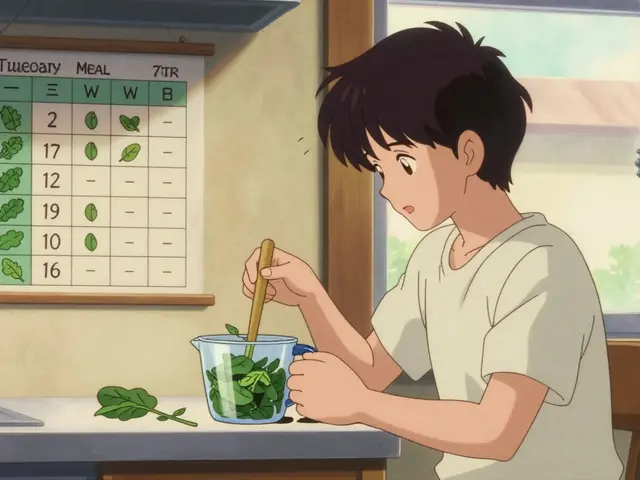
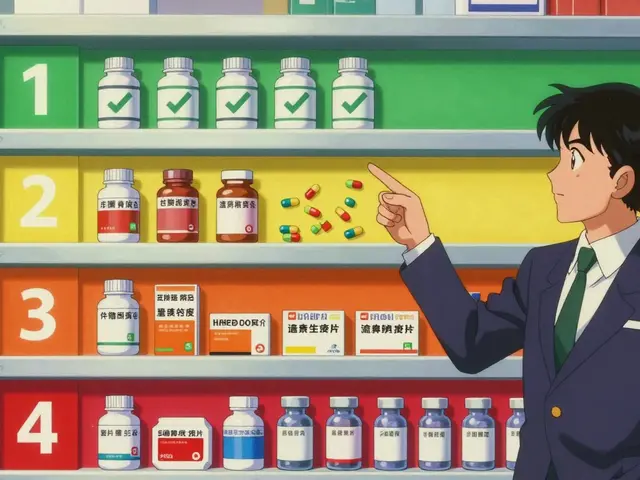
Shana Labed
November 1, 2025 AT 03:24OMG I JUST REALIZED I’VE BEEN DRINKING MATCHA EVERY MORNING FOR 6 MONTHS 😱 My INR was all over the place last month-now it makes SO MUCH SENSE. I switched to one cup a day and told my anticoag clinic-they’re monitoring me closer now. YOU GUYS, CONSISTENCY IS EVERYTHING. Don’t panic, just track it. WarfarinWise app is a GAME CHANGER.
California Daughter
November 3, 2025 AT 03:10Wait… so you’re saying… if I drink 3 cups of green tea… and then… skip a day… I’m… risking a stroke? Or a bleed? Or both? Like… simultaneously? That’s not a medical warning… that’s a horror movie plot. And now I’m paranoid about my chamomile tea too. Thanks. I hate this.
Vishwajeet Gade
November 4, 2025 AT 08:42Casey Crowell
November 5, 2025 AT 06:40Bro. I used to drink 2 gallons of green tea a day like it was Gatorade. My INR dropped to 1.2. I thought I was invincible. Then I got a blood clot in my calf. Not fun. 🫡 Now I stick to 2 cups regular green tea. No matcha. No drama. Just consistency. Your body isn’t a lab experiment. Treat it like your favorite plant-same water, same light, same love.
Shanna Talley
November 5, 2025 AT 13:49Consistency is the quiet hero here. Not avoidance. Not fear. Just steady rhythm. If your tea is part of your morning peace, let it stay. But if you’re switching brands or brewing methods or suddenly adding matcha lattes… pause. Check your INR. Talk to your pharmacist. Your body remembers patterns. Honor that. You’ve got this.
Samuel Wood
November 6, 2025 AT 02:05Let’s be real-the entire premise is pseudoscience. Green tea has negligible vitamin K in brewed form. The case studies cited are N=1 anecdotes dressed up as clinical guidelines. You’re telling people to fear their tea like it’s radioactive. Meanwhile, the real culprits-antibiotics, NSAIDs, cranberry juice-are glossed over. This is fearmongering dressed as education.
ridar aeen
November 6, 2025 AT 04:24Actually… I think Samuel’s onto something. I’ve been on warfarin for 8 years. I drink 4 cups of green tea daily. My INR’s been rock solid. I’ve never changed a thing. No apps. No logs. Just tea. Maybe the real issue is overmedicalizing normal life? We’re turning dietary habits into minefields. What happened to trusting your body?
chantall meyer
November 6, 2025 AT 23:42How quaint. Americans turn every beverage into a medical emergency. In South Africa, we drink rooibos with our warfarin. No issues. No apps. No panic. The real problem? You’ve outsourced your health to algorithms and fear-based blogs. Drink tea. Live. Stop logging everything. Your INR doesn’t need a spreadsheet.
Lorne Wellington
November 7, 2025 AT 15:20Y’all are missing the forest for the tea leaves. 😊 The real magic isn’t in the vitamin K-it’s in the ritual. Tea is calm. Tea is rhythm. Tea is the quiet anchor in a chaotic world. If your tea makes you feel grounded, keep it. Just don’t switch it up randomly. And if you’re using matcha? Cool. Just tell your doc. No shame. No guilt. Just awareness. We’re not fighting tea-we’re honoring our bodies’ need for stability.
Will RD
November 9, 2025 AT 02:28Jacqueline Anwar
November 11, 2025 AT 01:41It’s fascinating how the medical community has been systematically undermined by wellness influencers peddling tea as a panacea. This article, while technically accurate, still reinforces the dangerous myth that natural = safe. Vitamin K is not a suggestion-it’s a biochemical lever. To suggest that consistency is the only variable ignores pharmacokinetic variability, genetic polymorphisms, and individual metabolic differences. This is not advice. It’s a dangerously oversimplified narrative.
Ganesh Kamble
November 12, 2025 AT 06:14Jenni Waugh
November 12, 2025 AT 08:46Let me be the first to say this: I’m Indian. I grew up drinking chai. My grandmother drank 5 cups a day. She lived to 94. Her INR? Stable. Why? Because she never changed it. Never added matcha. Never stopped. Never googled it. She just… drank tea. Maybe the real lesson isn’t about vitamin K. Maybe it’s about tradition. Routine. Not fear. Not apps. Just tea.
Theresa Ordonda
November 13, 2025 AT 13:57I used to think I was fine with my 3 cups of green tea daily… until I started drinking cold brew. Then my INR spiked. Turns out, cold brew pulls out more catechins than hot. So now I only drink hot. And I log it. And I cry every time I see my INR go up. 😭 But hey-at least I’m not the one who switched to matcha lattes and then blamed the doctor. #TeaIsNotTheEnemy #ConsistencyIsMySuperpower